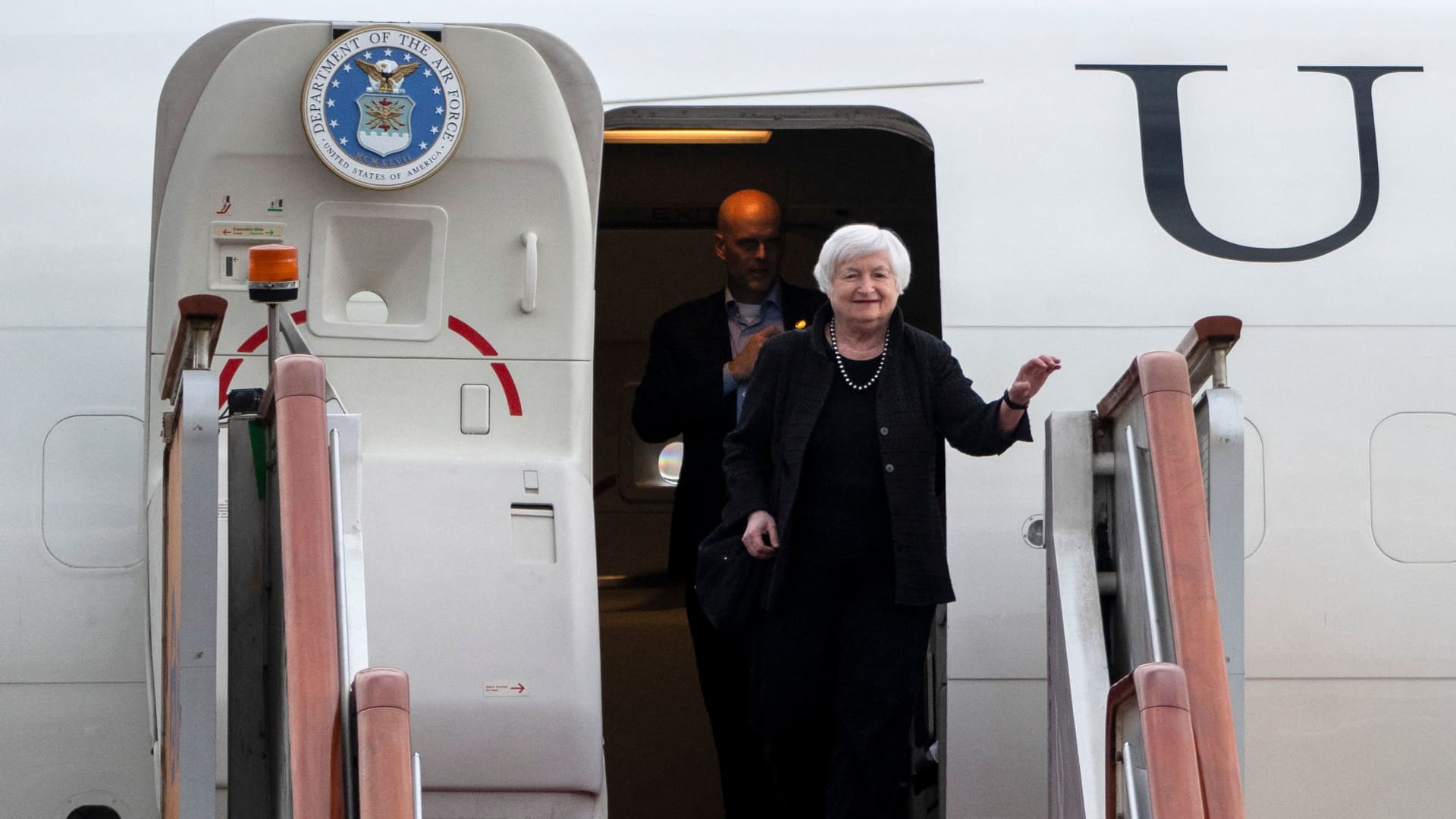U.S. Treasury Secretary Janet Yellen arrived in Beijing on July 6, 2023, for her first visit under the Biden administration.
Mark Schiefelbein | Afp | Getty Images
After a high stakes four-day trip to China, U.S. Treasury Secretary Janet Yellen said she had a “constructive visit” and a “very substantive series of meetings” with Chinese officials about the state of the global economy, export controls and national security.
Yellen’s trip is part of ongoing efforts to stabilize U.S.-China relations after months of escalating tensions. Her visit came just weeks after Secretary of State Antony Blinken’s visit last month.
These efforts could ultimately pave the way for a meeting between U.S. President Joe Biden and Chinese President Xi Jinping on the sidelines of the G-20 leaders’ summit in New Delhi in September and the APEC leaders’ summit in San Francisco in November. Both leaders last met in Bali last year.
“We have a new team on the economic side in Beijing, that it’s important to establish person-to-person relationships, and to open ongoing channels of communication, where concerns can be aired and discussed,” Yellen told CBS’ “Face the Nation” Sunday. “And I do think my trip has been successful in forging those relationships and creating the opportunity for a deeper set of more frequent contacts at our staff levels.”
Yellen’s task in Beijing was complex. She said she raised a number of concerns, including national security and the intimidation some American companies have been experiencing, but she also sought Chinese cooperation on issues ranging from climate change to debt distress.
Yellen said her purpose was to make sure the two nations do not engage in “unintended escalatory actions that will be harmful to our overall economic relationship with one another.”
For instance, just days before Yellen’s visit, Beijing slapped export curbs on chipmaking metals and compounds. China’s Ministry of Commerce claimed it gave the U.S. and Europe advance notice. In October, the U.S. launched sweeping rules aimed at cutting off exports of key chips and semiconductor tools to China.
Yellen said she expressed concern about the export controls and contrasted it with the U.S. decision. She explained that the U.S.’ actions “are narrowly targeted to address national security concerns,” while it is not clear that the Chinese export controls were implemented for that same reason.
“We have had very little contact, both senior officials, and also just the American people and the Chinese people who’ve had very little contact with one another over the last several years, in part because of Covid,” Yellen said. “And that’s a situation where misunderstandings can develop.”
Yellen said China is also taking steps to address concerns about a slowing economy, and that there are opportunities for American businesses to profit.
But even so, she said national security remains a priority for the U.S.
“China has an enormous market. It’s a significant share of the global economy, and we want to make sure that American businesses and workers can profit from that, and contribute also to China’s success as well as our own,” Yellen said. “But there are areas where national security really demands that the most advanced technologies with military applications, we need to withhold to protect our own national security. And we have acted and will continue to act to do that.”
— CNBC’s Clement Tan contributed to this report.

